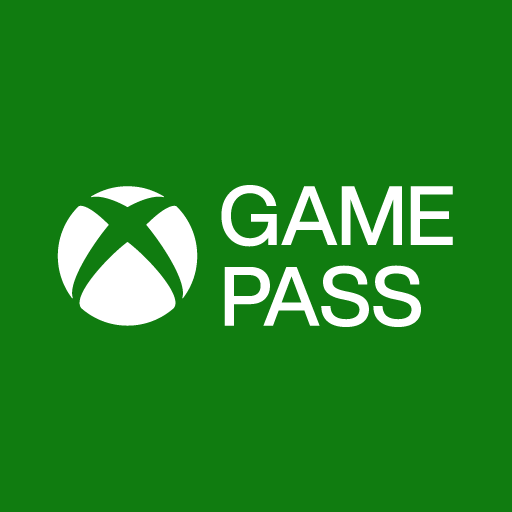THE CLOUD GAMING REVOLUTION: UNVEILING THE FUTURE AND UNRAVELING THE STADIA STORY
Read Time: 10 Minutes
The world of gaming is undergoing a seismic shift as cloud gaming emerges at the forefront, promising unprecedented accessibility and convenience. In this article, we'll explore the current state of cloud gaming, backed by sourced data, and unravel the narrative of Stadia, Google's ambitious foray into the cloud gaming realm.
THE RISE OF CLOUD GAMING:
Global Market Growth:
According to a report by Grand View Research, the global cloud gaming market is projected to reach $7.24 billion by 2027, reflecting a compound annual growth rate (CAGR) of 48.2% from 2020 to 2027. This rapid expansion is indicative of the rising prominence of cloud gaming on the world stage. Increased Accessibility:
Cloud gaming platforms, such as Microsoft's Xbox Cloud Gaming (formerly known as Project xCloud), NVIDIA GeForce Now, and PlayStation Now, are making high-quality gaming experiences accessible on a variety of devices, from smartphones to low-end PCs, democratizing gaming for a broader audience.
Increased Accessibility:
Cloud gaming platforms, such as Microsoft's Xbox Cloud Gaming (formerly known as Project xCloud), NVIDIA GeForce Now, and PlayStation Now, are making high-quality gaming experiences accessible on a variety of devices, from smartphones to low-end PCs, democratizing gaming for a broader audience.
Advancements in 5G Technology:
The rollout of 5G networks worldwide is poised to revolutionize cloud gaming by reducing latency and enhancing the overall gaming experience. Faster and more reliable connections will contribute to the widespread adoption of cloud gaming services.
THE STADIA SAGA:
1. Google's Ambitious Entry: Google Stadia was unveiled in March 2019, promising to revolutionize the gaming industry by offering high-quality gaming experiences without the need for expensive hardware. Leveraging Google's cloud infrastructure, Stadia aimed to stream games directly to users' devices.
2. Initial Hype and Challenges: Despite initial excitement, Stadia faced challenges from the start. Concerns about the subscription model, limited game library, and the necessity for a robust internet connection cast shadows on its potential success.
3. Closure of First-Party Studios: In February 2021, Google announced the closure of its Stadia first-party game development studios, signaling a shift in focus towards partnering with third-party developers. This move raised questions about Google's long-term commitment to Stadia's success.
4. The Stadia Pivot: Recent developments suggest a pivot in Stadia's strategy. Google announced partnerships with other gaming companies, including a collaboration with AT&T to bring Stadia to their Android TV devices. This shift indicates a reevaluation of Stadia's role in the evolving gaming landscape.
5. Stadia Shutdown: On September 29, 2022, Google announced that it would shut down Stadia, citing its lack of traction with users. The service was shut down on January 18, 2023, and Google refunded all purchases for hardware and games made through the Google and Stadia stores leaving its own controller being bluetooth compatible.
WHERE CLOUD GAMING IS HEADED:
1. Expanded Library and Partnerships: Cloud gaming services are actively expanding their game libraries through partnerships with major game developers. Microsoft, for instance, is continuously adding popular titles to its Xbox Cloud Gaming service, making it an attractive option for gamers.
2. Integration with Gaming Ecosystems: Cloud gaming services are increasingly integrating with existing gaming ecosystems. Microsoft's Xbox Cloud Gaming is part of Xbox Game Pass Ultimate, offering subscribers access to a vast library of games across multiple platforms.
3. Technological Advancements: Ongoing advancements in cloud infrastructure, including edge computing and improved compression algorithms, are enhancing the technical capabilities of cloud gaming platforms. These developments contribute to a smoother and more responsive gaming experience.
4. Competitive Landscape: The competition in the cloud gaming space is intensifying, with major players like Amazon entering the arena with Luna. This competition is likely to drive innovation and improve the overall quality of cloud gaming services.
PLAYABLE MOMENTS SET THE STAGE FOR INTERACTIVE GAME DISCOVERY
Ludeo’s application of cloud technology lies in the promise of improving game discovery. By offering a truly native way to play highlights of players' best gaming moments Ludeo is allowing gamers to access content much quicker than a traditional demo. Think about it. Before heading off to the movie theater or streaming the latest movie on Netflix, many consumers will watch a trailer. Similarly in music you can click on a sample and see if you like the music (or in today's case just buy a subscription to Spotify or a similar service) before you decide to purchase the song.
Everything is instant. Games have never had that frictionless environment. Sure you can watch a trailer or read a review, and in some cases download a demo that takes up considerable space and time to download (friction). However, Ludeo believes that there should be an adoption of instantaneous ‘playable moments’ that are curated by your gaming community. Yes…some ads allow you to play certain mobile game demos, but to truly understand the beauty of a game, give that power to your community and allow them to showcase your game for you.
Cloud gaming stands at the forefront of a transformative era in the gaming industry, with the potential to redefine how gamers access and experience their favorite titles. While the journey of Stadia has been marked by challenges and adjustments, the broader landscape of cloud gaming is flourishing. As technology continues to evolve and major players invest in the future of gaming, the horizon appears promising for cloud gaming enthusiasts worldwide.









